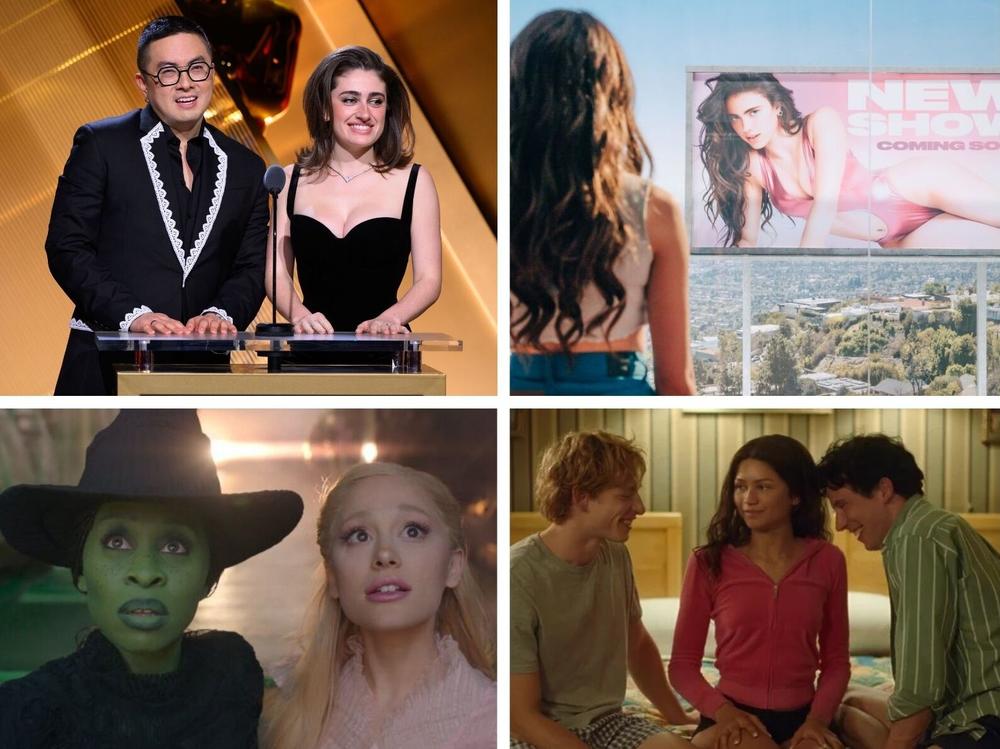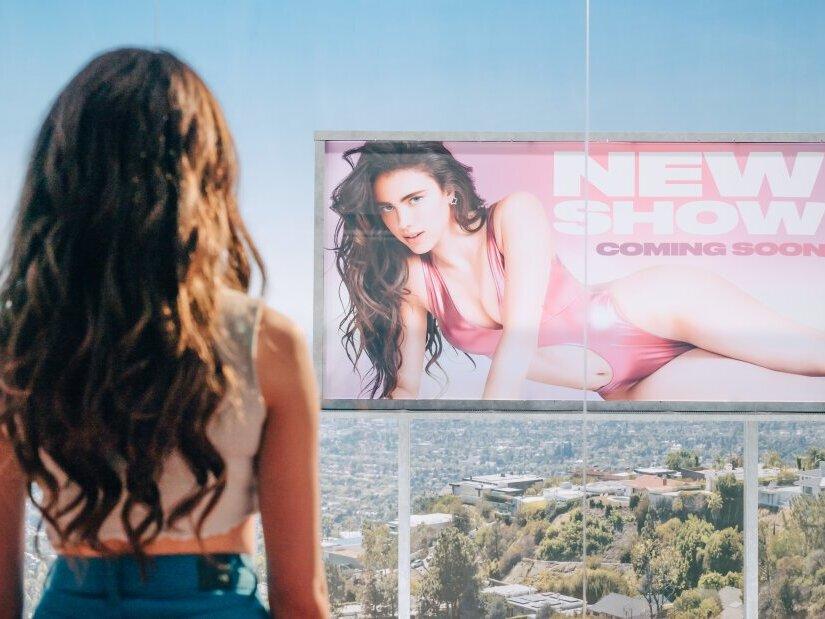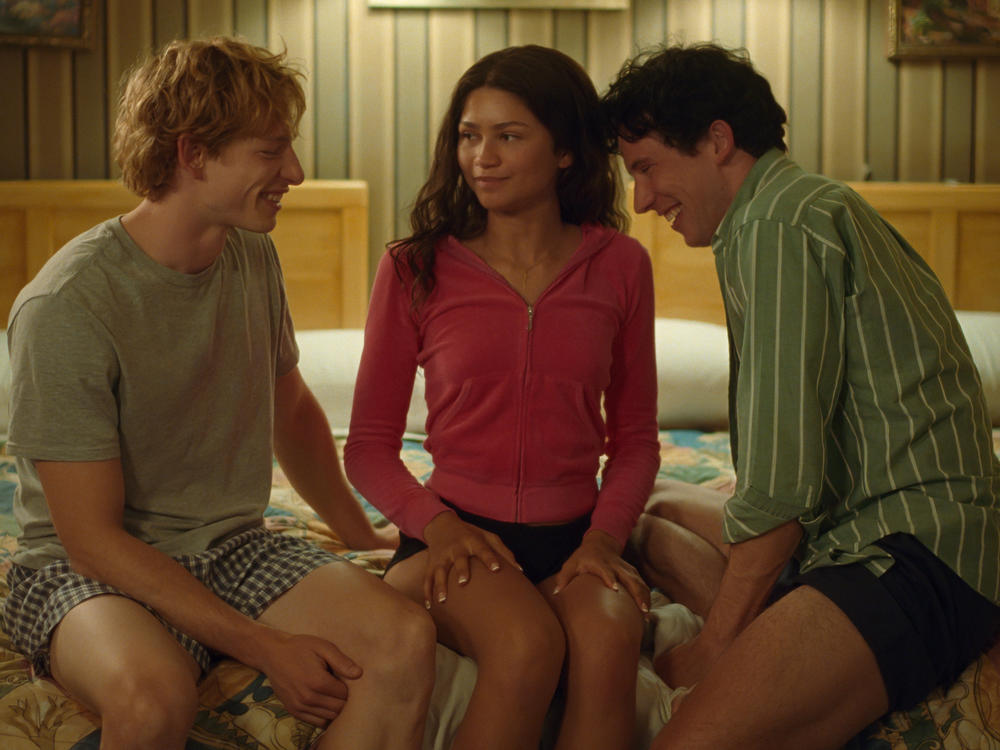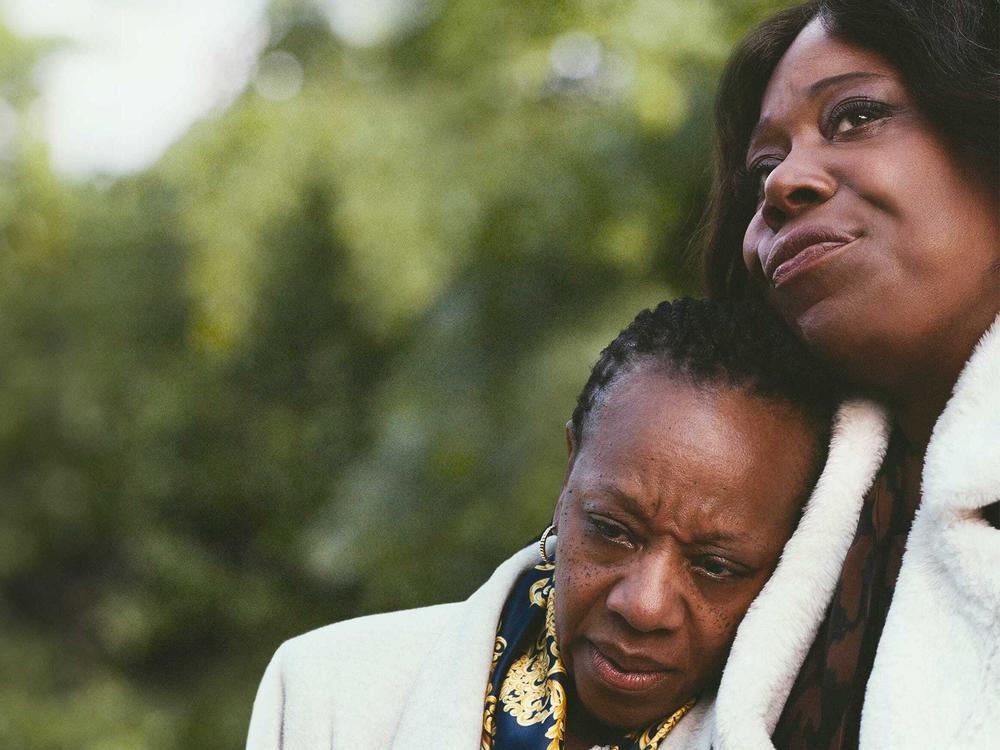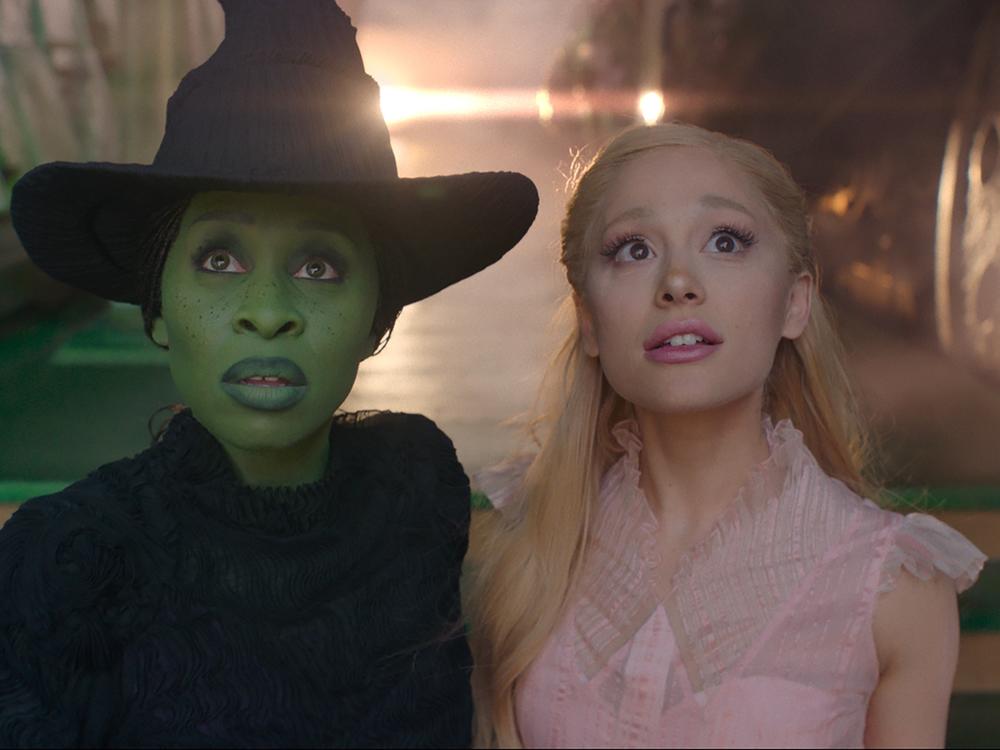Section Branding
Header Content
5 takeaways from the 2025 Oscar nominations
Primary Content
The nominations for the 2025 Academy Awards were announced on Thursday morning — you can see the full list here. Read on for our takeaways:
The Substance is the weirdest best picture nomination since … well, since last year, actually
Not so very long ago, The Substance was the kind of movie that would prove too weird, too niche, too cool for the Academy. Oh, they might have thrown it a screenplay nod – historically, if you think of the awards as high school, the screenplay category is that corner of the quad where the smokers hang out – but a best picture nod would've never been in the cards.
That's all changed in recent years, which is most likely a reflection of the Academy's attempts to skew its voting pool younger and more diverse. Staid biopics and sweeping historical epics will continue to earn best picture nominations, but now there's also room for more idiosyncratic films like last year's Poor Things and this year's The Substance.
Buzz grew around Demi Moore's Substance performance as the Oscar campaign season rolled along, so today's nomination didn't surprise many people. But back in September, when the film opened, the notion that Moore might get recognized by the Academy for her work as a TV aerobics instructor who'll go to any length to be young and beautiful was considered the very longest of shots. That has less to do with the strength of the performance than the context it arrived in – the role of Elisabeth Sparkle isn't your typical lead actress Oscar-bait, which is to say: Hers is not by any measure an inspiring tale of defiance and triumph in the face of adversity.
Instead, it's a comic tragedy that takes place inside a gleefully angry, hilariously broad and profoundly gross body-horror satire of Hollywood's fear of aging. As such, it makes a statement that the Academy can pat itself on the back for recognizing, which means she's the odds-on favorite.
Given all that, it's harder to understand the Academy passing over Margaret Qualley's contribution as Elisabeth Sparke's younger counterpart, Sue – but then, Moore has spent Oscar season receiving the lion's share of attention. She certainly goes bigger than Qualley's character does – and squishier.
And if you're surprised that The Substance got an original screenplay nod, given its dearth of dialogue, remember that this category's voters are screenwriters themselves. They see this award as a means to recognize things like solid narrative structure and the inventive use of surprise, suspense, tension and release, in addition to snappy wordplay.
The Substance ended up with five nominations in total: Best picture, lead actress, director, original screenplay, and – this one seems like a gimme – makeup and hairstyling.
Emilia Pérez? Seriously? Thirteen nominations?
Apart from praising the historic lead actress nomination of Karla Sofia Gascón (the first openly trans person of any gender to be nominated for an acting Oscar), I will leave it at this: This tone-deaf, mystifyingly bad musical about a trans Mexican cartel leader provides the kind of insight into Mexican culture, and revelations about the trans experience, that you'd reasonably expect from a cis Frenchman, writer/director Jacques Audiard.
Kidding, mostly. After all, cis men can make great films about trans people, like Sean Baker's Tangerine and Gil Baroni's Alice Junior. It's just that Audiard … very, very didn't.
(The history of trans folk nominated for Academy Awards is a slim one: English composer Angela Morley was nominated twice, in 1974 and 1976. Musician Anohni was nominated for best song in 2016. And in 2018, documentarian Yance Ford was the first openly trans man to receive a nomination. Elliot Page wasn't yet out as trans when he received his acting nomination for Juno in 2008.)
In showering Emilia Pérez with 13 nominations – just one short of tying the record 14 nominations received by Titanic, La La Land and freakin' All About Eve – the Academy ignored two other films that addressed trans themes in far less glib and more thoughtful, resonant ways than Emilia Pérez managed to do: I Saw the TV Glow and The People's Joker. Both, as it happens, were made by trans filmmakers. So if you do check out Emilia Pérez, do yourself the favor of checking those two out as well.
Recency bias proved a challenge that Challengers could not overcome
A terrific movie made for adults didn't get its props this year – a film about friendship, sex and the messiness that happens when they overlap. The fact that Challengers premiered way back in April pushed it to the back of Academy voters' minds. Yet Dune: Part Two came out in theaters back in March, so go figure. Maybe if Josh O'Connor's and Mike Faist's tennis outfits had recycled their (prodigious) sweat, the film would have had a chance this morning.
Justice for Marianne Jean-Baptiste!
You just know that Pansy, the character Marianne Jean-Baptiste plays in Mike Leigh's Hard Truths, is in a foul mood this morning. Forget the Oscar snub, Pansy is always in a foul mood: She's a bitter, snarling, wildly resentful person who endeavors to make everyone in her life — even strangers she encounters while out shopping — just as miserable as she is. She is nearly unwatchable. That "nearly" turns out to be all-important — it reflects that power of Jean-Baptiste's performance, which ensures that even as Pansy radiates levels of toxicity that would put Strontium-90 to shame, she remains stubbornly fascinating, achingly recognizable and deeply, deeply vulnerable. A shame Academy voters couldn't see past that.
Marianne Jean-Baptiste joins Pamela Anderson, Selena Gomez and Jamie Lee Curtis as big names whose Oscar buzz failed to put them over the nomination finish line this morning.
Politics, couched in drama. And comedy. And music.
"Tell all the truth," wrote Emily Dickinson, "but tell it slant." Which is the approach Hollywood's been taking for decades now, and is precisely what the Academy looks for in the movies it graces with Oscar nominations. The voters yearn to recognize films that demonstrate what they regard as serious heft, meaningful substance, and a real message. This is why comedies have historically struggled to break into the best picture race.
All of this year's nominees dutifully address big societal issues at a slant, although the sharpness of the angle differs from film to film.
Wicked engages with racism and fascism through the occluded lens of fantasy, using green skin and talking animals as stand-ins. Yes, Dune: Part 2 is a space opera, but it's also got something to say about such down-to-earth topics as colonization and exploitation. The Brutalist shows the curdling of the American dream, as capitalism co-opts the creation of great art. Similarly, in A Complete Unknown, artistic freedom is shown in bitter conflict with commercial expectations. Conclave depicts a Catholic Church mired in all-too secular forms of ambition, pettiness and fraud. Nickel Boys directly portrays the institutionalized abuse and murder of young Black men in the Jim Crow South by filming entirely in first-person. As noted above, The Substance managed to overcome the Academy's anti-comedy bias by virtue of its satirical target: a patriarchal, misogynistic Hollywood. I'm Still Here is a moving, straight-ahead account of life under Brazil's military dictatorship. And Emilia Pérez at least attempts to gesture at the role drug cartels play in Mexican life. Bless its heart.
Even Anora, arguably the smallest, most personal film in the bunch, grapples with yawning wealth and class inequity by smashing together the son of a Russian oligarch and a Brooklyn sex worker.
Given all these weighty, socio-political themes, maybe it's no surprise that a sweaty, sexy film like Challengers couldn't find a berth among this year's ten best picture nominees. It's a movie that dares to make no grand statements, and is content to keep its focus squarely on the shifting emotional stakes of its three leads. And also, not for nothing, on their muscular thighs.
There's your answer, filmmakers of tomorrow: When it comes to securing Oscar noms, you'll always be better off going for high-minded over horny.
